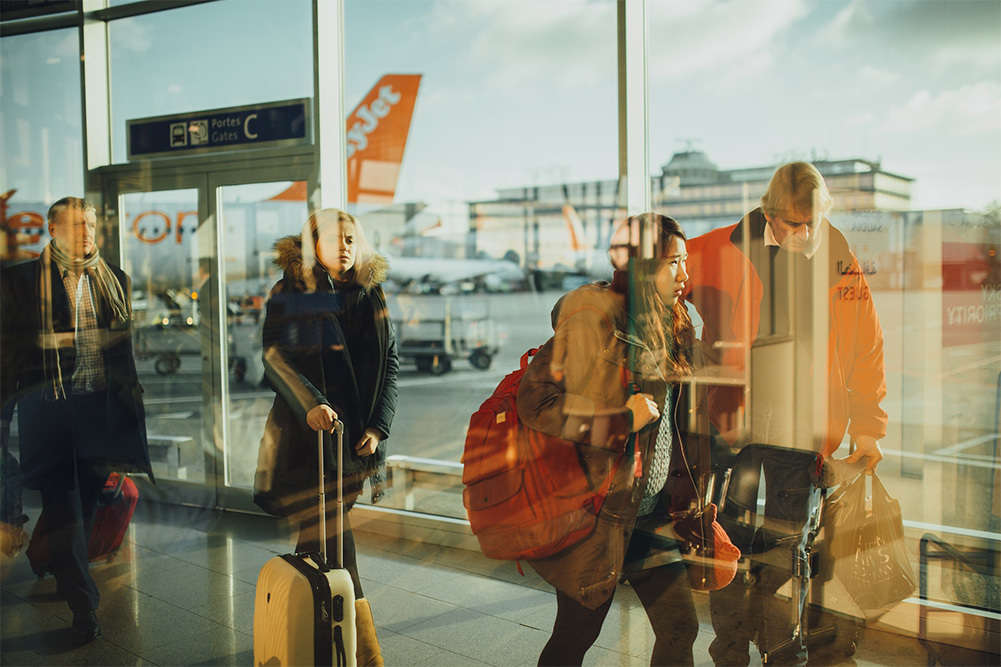(Translated by Google) Good service and kindness Edith is a very kind person (Original) Buena atención y amabilidad Edith es una persona muy amable
Read More
The Travel Bug: How to Stay Healthy for Winter Traveling
Posted: Nov 15th, 2018 at 12:00AM

You've booked a trip abroad for your winter traveling and now all that's left to do is plan your itinerary. But amidst all the destination research you're doing lurks something you might not have planned for whatsoever: the travel bug.
No, we're not talking about an intense desire to travel; we're talking about the literal travel bug. The one thing that can keep you from enjoying your winter traveling this year — an unexpected illness or even a disease.
Don't risk ruining your trip — read these tips to stay healthy and happy while traveling internationally this winter.
How to Stay Healthy for Winter Traveling
1. Prepare for Your Environment
For starters, the environment you'll be in can increase your risk of illness, so you need to plan accordingly.
For example, if you're going on a cruise, you might have a higher risk of getting sick than someone who's traveling for business, because they'll be around fewer people. Going on a cruise means being in tightly packed spaces with a lot of people. Cruise ships aren't the cleanest places to be, and they often don't have a doctor on board — just a staff member who's been trained in basic first aid.
.jpg)
The same goes for someone who is checking out popular (and crowded) tourist sites throughout their trip, as opposed to visiting family overseas.
Wherever you go, don't forget to practice basic hygiene. To help keep illness at bay, you'll need to make proper handwashing a priority. This can help prevent norovirus, which is prone to strike in high-traffic, confined areas. Norovirus, which causes diarrhea and vomiting, is highly contagious and spreads easily from person to person, according to the CDC. While outbreaks can occur at any time, the CDC warns it's most common from November to April, making it extra risky for winter travelers.
Check Your Destination Country's Prescription Medicine Laws
If you currently take any prescriptions medications, over-the-counter drugs, and even supplements, you first need to confirm that they're allowed where you're going, because other countries can have different laws regarding what prescription medication you can and cannot bring with you. The same can be said even for the most basic OTC cough medicines you can buy anywhere in the United States.
 If your prescription is allowed, be sure to pack enough to get you through the duration of your trip, in case you can't get any there. If you'll be gone an extended amount of time, talk to your pharmacy about getting your medications filled in advance to ensure you have them while you're gone.
If your prescription is allowed, be sure to pack enough to get you through the duration of your trip, in case you can't get any there. If you'll be gone an extended amount of time, talk to your pharmacy about getting your medications filled in advance to ensure you have them while you're gone.
Depending on where you're going, you may also need to bring new prescriptions to help prevent location-specific illnesses. Bear in mind there are illnesses in other countries that, put simply, don't have much of a presence in the United States. This means there's a chance you're not yet immune to them and need extra protection.
Schedule a Travel Consultation
Because you're traveling internationally and might be exposed to diseases and illnesses that aren't common (or even exist) in the United States, visiting a travel medicine professional before your trip is of utmost importance.
By scheduling a travel consultation at your local vaccine center, the specifics of your individual health and travel destination can be assessed by a doctor. For example, you might need a particular vaccine depending on the country you're visiting or the activities you'll be doing.
Travel medical specialists can also advise you on what regional foods to stay away from, as well as go over other local safety concerns. From insects to illness to water safety, a travel consultation can help prevent a variety of maladies from occurring while traveling.
Consider the Climate

Knowing what weather to expect can help you pack appropriate clothes for your trip.
- Will a light jacket do or will you need something much warmer?
- Should you carry an umbrella with you at all times?
- Will you need snow boots?
- What about a rain jacket?
- Should you pack gloves, scarves, or a hat?
- Will you need an air-pollution mask?
Keeping an eye on the weather — up to the very day you leave — will ensure youre able to pack what you need to stay warm and dry throughout your trip. If youre not able to pack it with you, be prepared to buy it at your destination.
Make Mindful Choices on Your Flight(s)
Don't assume your flight is going to keep your fed and hydrated. Even on long international flights, you might only be given one small water bottle at a time. To be extra cautious, stock up on water and healthy snacks at an airport gift shop.
It's a good idea to skip alcohol, caffeine, and sugary treats for the duration of your flight, as well.
Staying hydrated and making healthy food choices throughout your flights is crucial to feeling your best during your winter traveling.
Be Fickle About Food
A sudden change to your diet can confuse your body and wreak havoc on your digestive system. This is why it's smart to look up the cuisine of the countries you'll be visiting to prepare for this change ahead of time.

You’ll also want to read up about any regional foods you might want to avoid. This could be something as exotic as bushmeat (bats, monkeys, rodents, or antelope) — which the CDC warns often contribute to diseases like Ebola or Severe Acute Respiratory Syndrome (SARS) — or something as common as berries, which could have been washed in unsafe water.
Travel Smart
Whether your winter travel plans are for business or pleasure, a little preparation will go a long way toward keeping you – and your traveling companions — healthy. From getting vaccinated before you go to avoiding certain foods, simple actions like these can help prevent disaster from striking while you're overseas.
Are you planning on traveling internationally this winter? Schedule a travel consultation today so you can stay healthy this season.

OMG, so e7 is one-of-a-kind in Vegas. My husband needed a TB Skin Test and I was able to book for the next hour. The staff actually answers the phone, right away. They are kind and nice. Upon arrival, at e7 Windmill location, the receptionist (who's name I do not have) was so kind, nice, and caring. She's a gem. During our brief wait for my husband's appointment, I witnessed the interaction between staff members and also, their clients. It's amazing that the entire, big e7 Team loves each other and what they do. You do not see this anywhere else. The team's interaction was magical. AND then how each staff member interacts with their patient, well... just unique. My husband had Alia, who definitely folded her Angel Wings in to fit in to the treatment room. What an amazing being. So patient, as my husband was on a walker and not so ambulatory. She explained all so clearly and easily. Truly, we have never experienced such CARE not just in Vegas, but anywhere. She also went above-and-beyond for us as to the next step. e7 scared me at first online, but now, they are my Go To and I have already recommended to many. God bless Alia and all. The Team truly LOVE what they do and it shows.
Read More

















